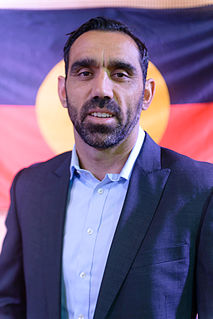A Quote by Chris Hedges
The media propagates a message that corporations want, and there’s a belittling and mocking of the poor and celebration of wealth. A kind of cutthroat, rapacious capitalism is celebrated on reality television shows where you betray and manipulate and push aside your competitors for fleeting fame and money. These are sick values, but they’re disseminated through corporate media in almost every program you watch.
Quote Topics
Related Quotes
...the mass media. What are they? They're huge corporations, massive corporations, linked up with even bigger corporations. They sell audiences to other businesses, namely advertisers. So when you turn on the television set, CBS doesn't make any money. They make money from the advertisers. You're the product that they're selling, and the same is true of the daily newspaper. They're huge corporations, selling audiences, potential consumers, to other businesses, all linked up closely to the government, especially the big media. What picture of the world do you expect them to present?
What's really going on here is, this is a media shift. It's comparable to what happened in the 1950s and the birth of electronic mass media back then.This is the birth of a new kind of personal media, where, instead of we're all watching one program, we're all watching each other. And the history of media makes it really clear. Whenever we have a big innovation, the first wave of stuff we do is pretty crummy. The printing press gave us pornography, cheap thrillers, and how-to books. Television gave us Newt Minow's vast wasteland.
During the run up to the Iraq War, Mike Farrell and I did get on television kind of frequently, but then they saw that that didn't work. They really couldn't bait us into being stupid, so they stopped. You know the mainstream media, corporate media, avoids ever giving anyone who has anything to say a platform, if they can possibly help it.
The arrival of television established a mass-media order that dominated the last 50 years. This is a personal media revolution. The distinction between the old order and the new order is very important. Television delivered the world to our living room. In the old media, all we could do was press our noses against the glass and watch.
My definition of media? 'Anything which owns attention.' This could be a game or, perhaps, a platform. Ironically, the media tends to associate media with publishing - digital or otherwise - which, in turn, is too narrow a way to consider not only the media but also the reality of the competitive landscape and media-focused innovation.

































